World Food Crisis Appeal
Millions of families are facing a food crisis that could be worse than any we’ve lived through.
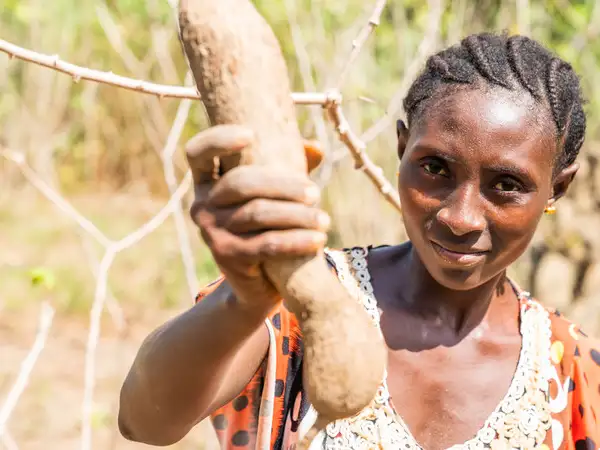

Martha in Sierra Leone holds up a cassava. Despite her small farm, she often struggles to give her two children enough food to eat.
We believe that a future where nobody goes hungry is possible, and with your help we can make this hope a reality.
“We can dream of a future without hunger, but this is only reasonable when we engage in tangible processes, vital relations, effective plans and real commitments.”
Families in Kenya, Sudan, Ethiopia and South Sudan are facing extreme hunger right now as rising food prices make a desperate situation worse.
Working as part of the global Caritas network of Catholic international aid agencies, our local Church aid workers are already on the front line, getting emergency food supplies and clean water to vulnerable families in need.
“For I was hungry, and you gave me to eat ... in so far as you did this to one of the least of my brothers and sisters, you did it to me.”
800 million people go hungry each day and the majority of them are those who grow the world’s food. Through our network of global experts we’re helping farming families in over 30 countries fight the daily threat of hunger so they can thrive.
We first met Fiona in 2017 when she didn’t have enough feed her family. In the driest months sometimes they’d have no more than a handful of food each.
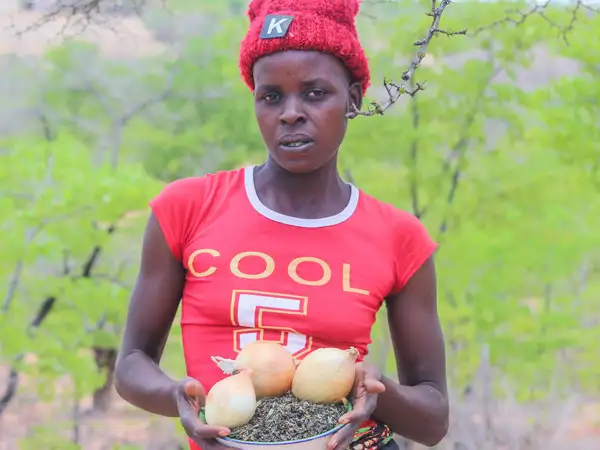

The donations that helped Fiona and her community were matched by the UK government
Millions of families are facing a food crisis that could be worse than any we’ve lived through.
The global food system is broken. It doesn’t work for those who work the hardest – small farmers – and it’s a major driver of the climate emergency.
Pray with us for a fairer global food system where everyone has enough.
But then something incredible happened. Local nutrition experts from our church partners reached out to Fiona and her community. They offered training and equipment and offered to work alongside them to establish a vegetable garden. Now Fiona’s family is thriving – and her children have plenty to eat.
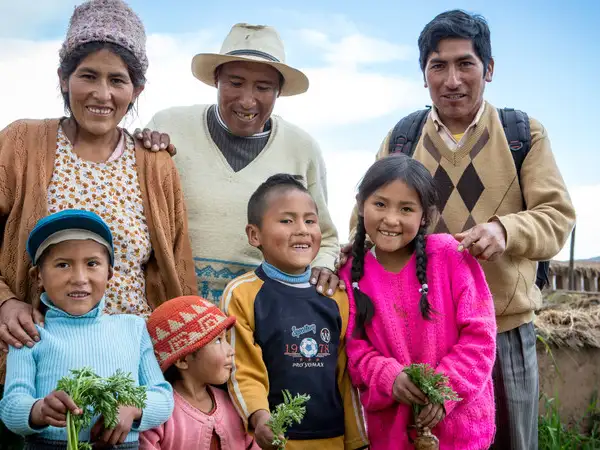

Rosa and her family
Rosa and her family live on the Bolivian Altiplano – an area of arid plain high in the Andes mountains. Up here the burning sun can give way to heavy hailstorms, destroying the crops she spends so long cultivating. With your donations, our experts have helped Rosa and her neighbours to install piping for watering crops, a wormery to produce compost and a greenhouse to shelter their vegetables from harsh weather.
Thanks to your support, Alpona is growing food in a different way. After her community received training from CAFOD in organic farming, things changed dramatically: “I get a great deal of vegetables and fruits from my organic farming, which is enough for the family to eat, and which I can sell at the market too.”
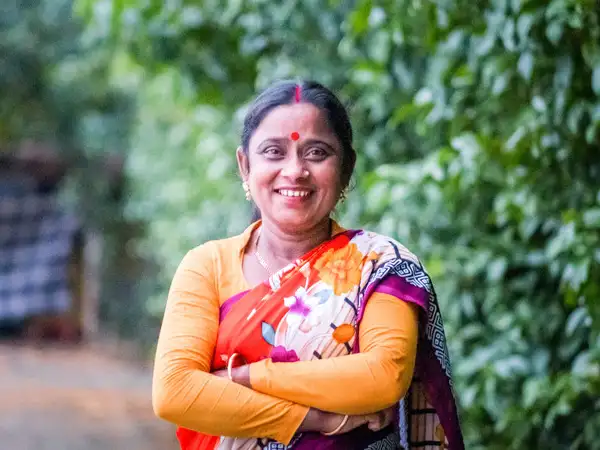

Alpona, the leader of an eco village in Bangladesh
“The fight against poverty and hunger must be fought constantly and on many fronts, especially in its causes.”
We can’t ensure a future without hunger with your generous donations alone.
Even while our sisters and brothers go hungry, we are producing enough food globally to feed everyone! So join our demand to fix the food system for good, and for everyone.
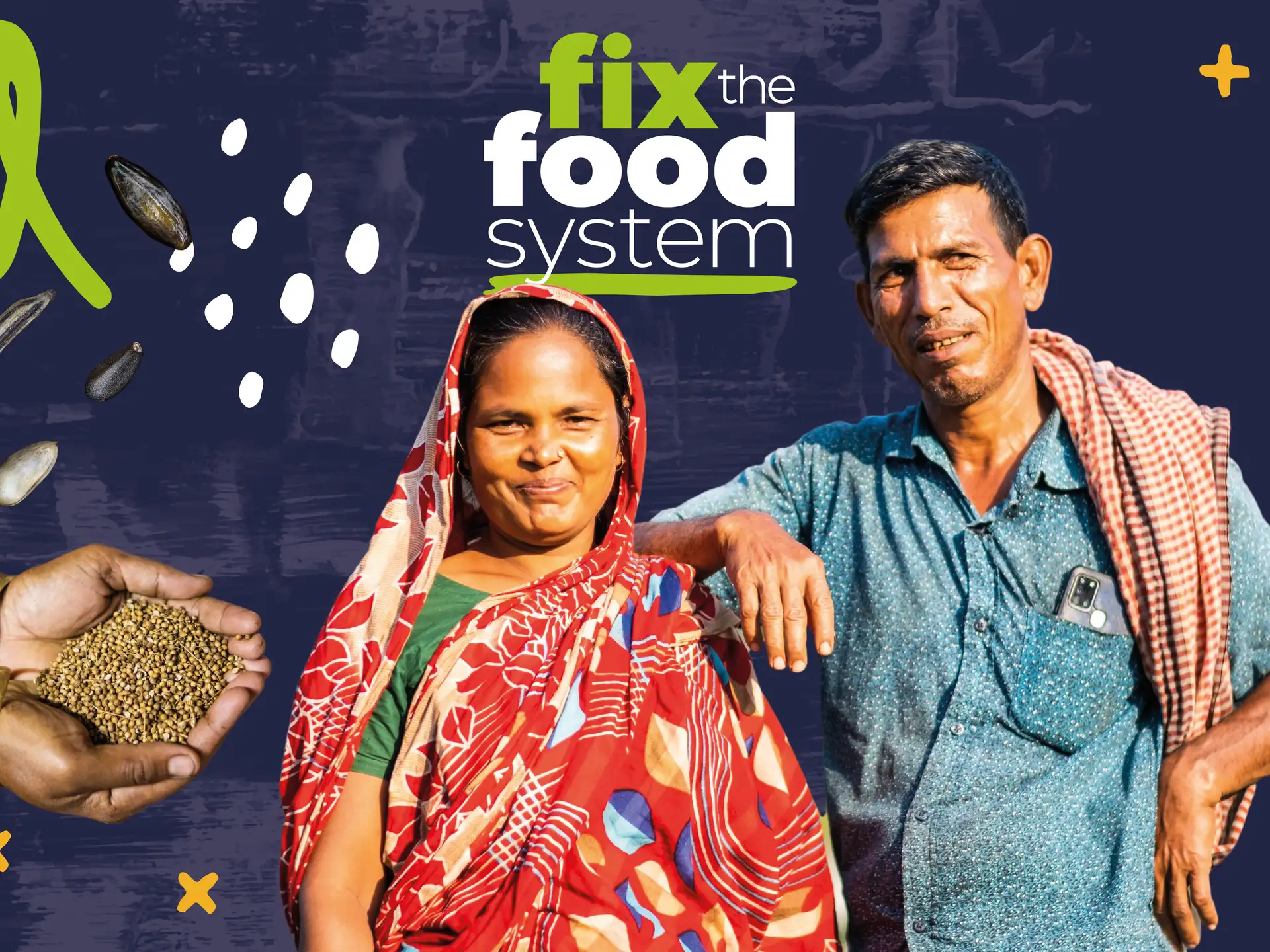
Our global food system is broken. Over 800 million people go hungry, and the way we produce much of our food harms our planet.
Seeds are at the very heart of the food system. They are part of nature and given by God for the benefit of all but increasingly farmers’ rights to choose their own seeds are under threat.